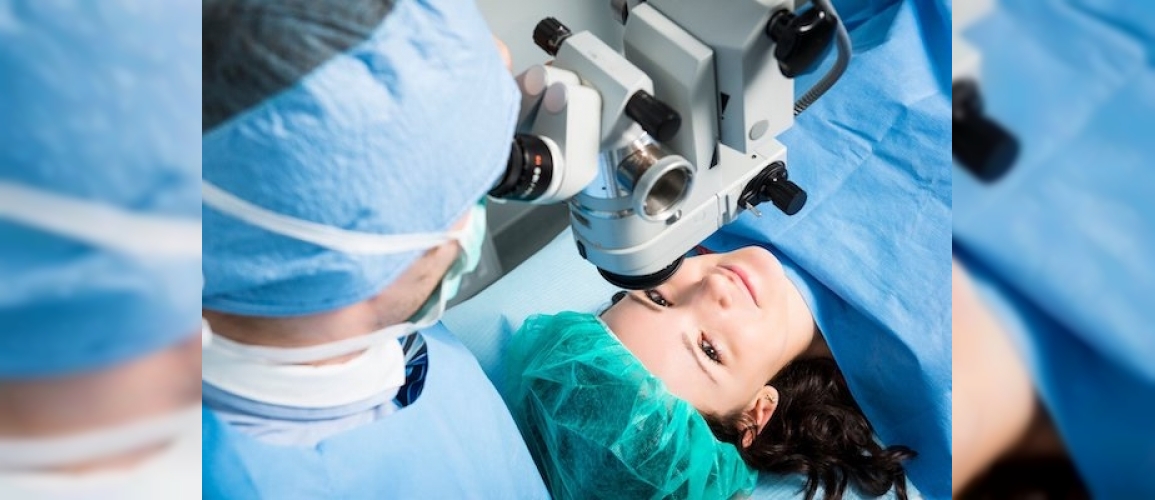Welcome to Us
-
Sing Up
-
Login
Is Anesthesia Used in Cataract Surgery



Is Anesthesia Used in Cataract Surgery?
Cataract surgery is a type of operation that involves changing the structure of the eye’s natural lens. The problem arises when this natural lens becomes cloudy, causing blurred vision. You can think of it as a piece of glass that has become scratched and lost its clarity. This condition leads to difficulties in night driving, sensitivity to light, faded colors, and overall blurry vision. After anesthesia is administered in cataract surgery, the cloudy natural lens is removed and replaced with an artificial lens. Local anesthesia is commonly used during this process, and the patient typically does not need to stay overnight in the hospital.
We can compare this to replacing the headlights of a car. Over time, headlights become dull and obstruct the passage of light, so we improve the car’s ability to drive at night (visual ability) by replacing (through the procedure) the lens of the headlight (the lens of the eye). It is expected that the new headlight (artificial lens) will reflect light better and provide clearer vision. As a result, it is a procedure that replaces the cloudy natural lens with a new one to eliminate its opacity, thus improving the patient’s visual quality. This treatment is safe and effective.
What are the Symptoms of Cataracts?
Blurry or hazy vision: The most common and noticeable symptom is generally blurry or hazy vision. This symptom may be mild in the early stages but becomes more pronounced over time.
Sensitivity to light: Individuals with the condition may experience sensitivity to bright lights or sunlight. This can result in excessive glare or light reflections when exposed to strong lights.
Difficulty with night vision: Those with cataracts often have difficulties with night vision, making it challenging to drive at night or read in low-light conditions.
Double vision: Double vision with one eye can also be a symptom of the problem. However, this is typically seen in more advanced stages. Anesthesia may be required during cataract surgery when it reaches an advanced stage.
Fading of colors: People with cataracts may perceive colors as dull or faded. This can make it difficult to distinguish vibrant colors, especially.
Frequent changes in glasses or lens prescription: As the condition progresses, frequent changes in glasses or lens prescriptions may be necessary.
These symptoms can overlap with other conditions, so a professional evaluation is required for an accurate diagnosis and treatment. The treatment for the disease is typically performed through a surgical procedure and is a common and highly successful treatment.
In Which Cases is Anesthesia Method Used in Cataract Surgery?
Topical Anesthesia: This is an application in the form of eye drops. With topical anesthesia, the patient remains awake during the cataract surgery but does not feel any pain in the eye. Topical anesthesia is one of the most commonly used types in surgery because it allows for quick recovery after the procedure.
Peribulbar and Retrobulbar Anesthesia: These types involve the numbing of surrounding nerves through an injection. This helps control movement and prevents pain during the operation. These types are generally preferred for more complex cases or when the patient wishes to remain completely still during the procedure.
General Anesthesia: General anesthesia numbs the entire body and puts the patient to sleep. Therefore, it guarantees that the patient feels nothing during the treatment. However, general anesthesia carries more risks compared to local anesthesia and is used in cases where local anesthesia is not suitable, such as in children or in individuals who do not want to remain awake during the procedure or due to their health conditions.
In each case, the choice of anesthesia in cataract surgery depends on the patient’s overall health condition, the condition of the cataract, the experience of the doctor, and patient preferences. It is best to have a detailed discussion with your doctor regarding this matter.


